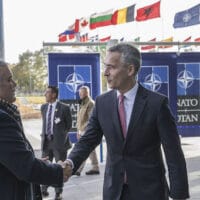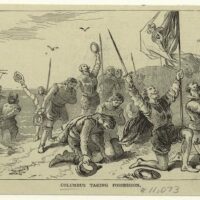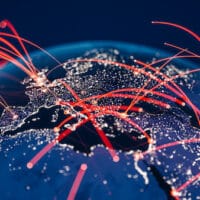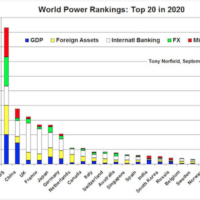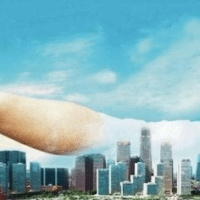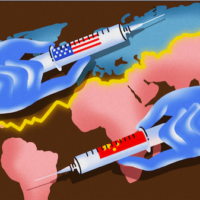-
With clenched fists, they spend money on weapons as the Planet burns: The Eighteenth Newsletter (2022)
Two important reports were released last month, neither getting the kind of attention they deserve. On 4 April, the Intergovernmental Panel on Climate Change’s Working Group III report was published, evoking a strong reaction from the United Nations’ Secretary General António Guterres.
-
Peace Movement needs to demand dismantling of NATO
NATO went from fighting socialism to enforcing global empire.
-
Call it apartheid
Mondoweiss is a key movement and media resource helping the world understand what is happening in Palestine and calling it by it’s true name: apartheid. Donate today to make sure Mondoweiss can continue to publish the unvarnished truth.
-
We are in a period of great tectonic shifts: The Eleventh Newsletter (2022)
The war in Ukraine has focused attention on the shifts taking place in the world order. Russia’s military intervention has been met with sanctions from the West as well as with the transport of arms and mercenaries to Ukraine.
-
Globalisation and the relocation of capital and labour
The twin phenomena associated with contemporary globalisation, of migration of capital from the metropolis to parts of the third world, and of migration of labour from the erstwhile second world to the metropolis, have the effect of weakening the working class movement everywhere.
-
Discerning Volodymyr Zelensky
In this extremely short and simplistic post, I will do what it says on the tin: Scrape away the already deeply impacted layers of wartime propaganda. I propose to do this in the old-fashioned American way: By following the money.
-
Barack Obama’s father identified as CIA asset in U.S. drive to “recolonize” Africa during early days of the Cold War
Over the last decade, the U.S. has been quietly expanding its covert intelligence empire in Africa as part of a growing geopolitical rivalry with China.
-
NATO’s tentacles from Europe to Latin America
International analysts are often, and understandably, asked whether there will be a change in U.S. foreign policy depending on whether a Republican or Democratic president rules the White House.
-
Globalization from Christopher Columbus, Vasco da Gama and Ferdinand Magellan until today
In North America, the European colonization started during the 17th century, mainly led by England and France, before undergoing a rapid expansion during the 18thcentury, an era also marked by massive importation of African slaves
-
Thanksgiving glorifies the abhorrent colonization of Indigenous Peoples
From Columbus Day to Independence Day to Thanksgiving, the U.S. pretty much specializes in taking dates that celebrate genocide and discrimination, and repackaging them as family-friendly holidays.
-
Canadian imperialism and the responsibility to ‘Voluntour’
The term ‘voluntourism’ is a portmanteau of the words ‘volunteer’ and ‘tourism’ and refers to a practice in which people, often young upper or middle-class white women in the Global North (Bandyopadhyay and Patil 2017, 645), pay an organization to coordinate their trip to a country in the Global South.
-
The homogenisation of education
Education in post-independence India was supposed not just to provide knowledge and skills to students, but also to facilitate the process of “nation-building” (to use a clumsy word).
-
Globalization and its big data: the historical record in financial markets
In the 19th Century, “hypothecations” provided investors with valuable information on sovereign fiscal resources.
-
World power
The concentration of global power is extreme, and it rests upon the different ways a country can have influence over how the world works.
-
Capitalism vs. the Planet
The latest IPCC report paints a picture of five potential futures for humanity. In the worst one, if corporations keep calling the shots, we could see catastrophic warming of up to 5.7˚C.
-
Michael Hudson v. George Soros on China’s Rejection of “Market” Capitalism
This article would have been very useful if it had stuck to its headline warning, which is more or less along the lines that Xi has made very clear that he’s not going to allow investors, above all foreign investors, to exercise more influence in Chinese business and society.
-
‘We are in nobody’s backyard’: rejecting geopolitical and historical fatalism
The catch-phrases “transnational criminal organizations,” “humanitarian assistance” and even “disaster relief operations” are worn-out euphemisms for the neo-colonial presence of the U.S. Empire and its European allies in Guyana and throughout the region.
-
Decolonization and communism
While the turn towards analyzing ongoing settler-colonialism has finally reached the mainstream of North American political discussions, there is still a lack of popular understanding of the issues involved.
-
Center-periphery relationships of pharmaceutical value chains
The internationalization of the pharmaceutical industry only rose after the internationalization of patent protection in the Agreement on Trade Related Aspects of Intellectual Property Rights (TRIPs Agreement) (Haakonsson, 2009).
-
Why China’s vaccine internationalism matters
As rich nations stockpile COVID-19 vaccines, China is providing a lifeline to Global South nations spurned by Western pharmaceuticals and excluded by the West’s neocolonial vaccine nationalism. So why is China being smeared for its efforts?


![[Source: greatgameindia.com]](https://mronline.org/wp-content/uploads/2022/04/Screen-Shot-2022-04-28-at-3.23.22-PM-200x200.png)




![Barack Obama Sr. [Source: wikipedia.org]](https://mronline.org/wp-content/uploads/2022/02/Obama-SR-200x200.jpg)
